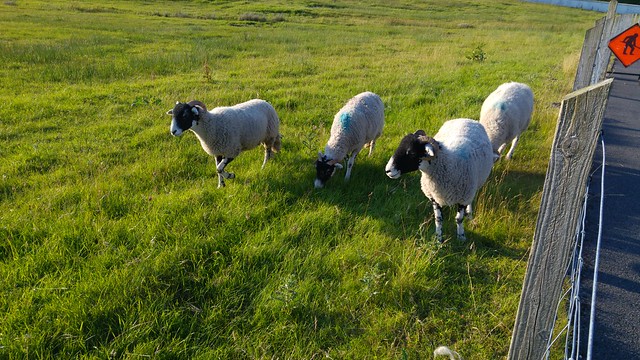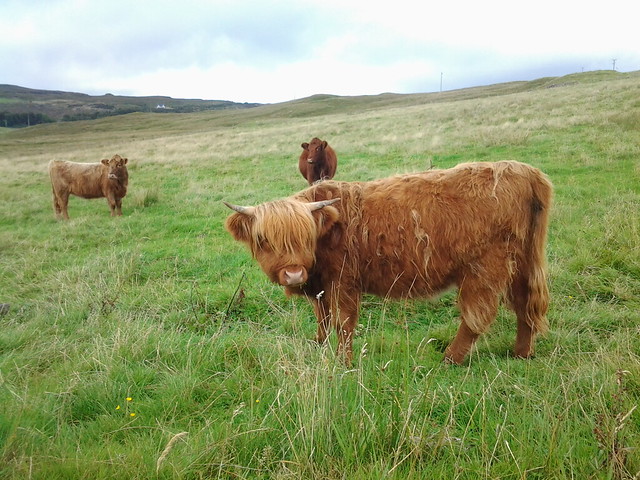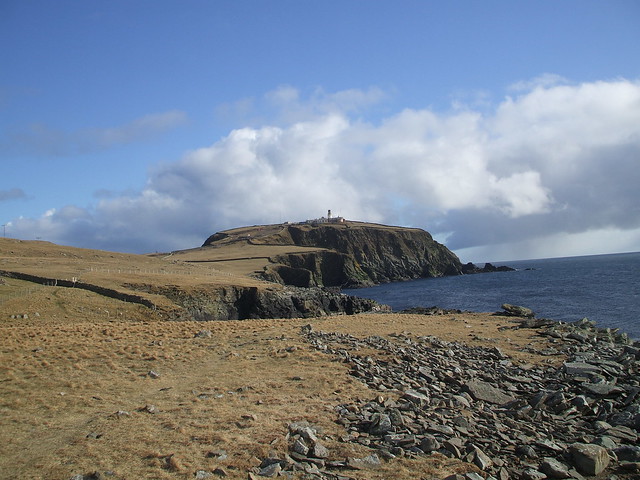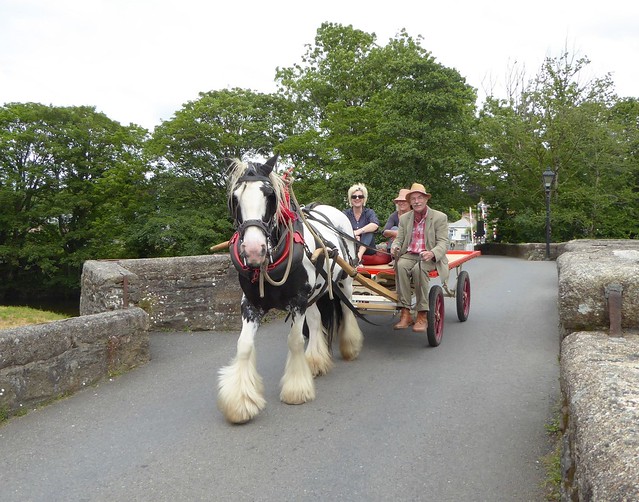Words for sheep and related words in Celtic languages.
| Proto-Celtic | *kaɸrāxs = sheep |
|---|---|
| Old Irish (Goídelc) | cáera, caíra [ˈkaːi̯ra] = ox, cow |
| Irish (Gaeilge) | caora [ˈkeːɾˠə / ˈkiːɾˠə] = sheep, ewe |
| Scottish Gaelic (Gàidhlig) | caora [kɯːrə] = sheep, sheepish person |
| Manx (Gaelg) | keyrrey = sheep |
| Middle Welsh (Kymraec) | kaeriwrch = roebuck |
| Welsh (Cymraeg) | caer = sheep (archaic) caeriwrch / cariwrch = roebuck |
Etymology: possibly from the Proto-Indo-European *kápros (goat) [source].
| Proto-Celtic | *damos = ox, bull, domesticated animal *dametos = sheep |
|---|---|
| Old Irish (Goídelc) | dam [daṽ] = ox, stag, hero, champion |
| Irish (Gaeilge) | damh [d̪ˠaw] = ox, stag; strong man, champion, corpulent person damh alla = stag damh comhair = one of a pair of oxen, yokefellow; equal, peer damháire = bellowing, lowing (of oxen), belling (of stag) damhán = small ox damhra = oxen, yoke of oxen; stags, herd of deer |
| Scottish Gaelic (Gàidhlig) | damh [dav] = stag (antlered, up to 4 yrs old), ox, oaf, crab missing a claw damh-féidh = hart, stag cho dall ri damh ann an ceò = as blind as a bat in daylight (“as blind as an ox in the fog”) |
| Manx (Gaelg) | dow = ox, hart, stag |
| Proto-Brythonic | *daβ̃ad = sheep |
| Middle Welsh (Kymraec) | dauat, davad = sheep |
| Welsh (Cymraeg) | dafad [ˈdavad/ˈdaːvad] = sheep, ewe; one who is under the charge of a spiritual pastor defaid cymorth = sheep given to a needy person to form the nucleus of a flock dafad ddu = black sheep, prodigal son, ne’er do-well of a family defaid Dafydd Jos = waves, billows (“David Jones’ sheep”) mynd yn draed defaid = to go to ruin (“to become sheep’s feet”) |
| Old Cornish | dauat = sheep |
| Cornish (Kernewek) | davas = ewe, sheep kig davas = mutton |
| Breton (Brezhoneg) | dañvad [ˈdãː.vat] = sheep; overly kind, gentle person; cuckold, flock; small, fluffy clouds, foamy waves dañvadez = ewe |
Etymology: the Brythonic words come from *dametos, which comes from *damos. Both these words come from the Proto-Indo-European *demh₂- (to domesticate, tame) [source]. The English words tame, (in)domitable and danger come from the same PIE root [source].
| Proto-Celtic | *retio- = ram |
|---|---|
| Old Irish (Goídelc) | reithe [r͈ʲeθʲe] = ram; boats used as fireships |
| Irish (Gaeilge) | reithe = ram |
| Scottish Gaelic (Gàidhlig) | reithe [r͈ʲe.ə] = ram, tup; Aries |
| Manx (Gaelg) | rea = ram, tup |
Etymology: unknown [source].
| Middle Welsh (Kymraec) | hwrd, hwrt = ram |
|---|---|
| Welsh (Cymraeg) | hwrdd = ram; a stupid person; battering ram; rammer, beater; Aries |
| Old Cornish | horþ = ram |
| Middle Cornish | hordh = ram |
| Cornish (Kernewek) | hordh = ram |
| Breton (Brezhoneg) | (h)ourz = ram |
Etymology: unknown.
| Proto-Celtic | *moltos = ram, wether (castrated ram) |
|---|---|
| Gaulish | *multon = sheep |
| Old Irish (Goídelc) | molt [mol͈t] = ram, wether |
| Irish (Gaeilge) | molt = wether, sulky, morose person |
| Scottish Gaelic (Gàidhlig) | molt [mul̪ˠt̪ˠ] = wether |
| Manx (Gaelg) | mohlt = castrated sheep, wether, mutton |
| Middle Welsh (Kymraec) | mollt = castrated ram, wether, mutton |
| Welsh (Cymraeg) | mollt [moːɬd / mɔɬt] = castrated ram, wether, mutton |
| Cornish (Kernewek) | mols = wether, sheep |
| Middle Breton | mout, maout = ram |
| Breton (Brezhoneg) | maout [ˈmɔwt] = ram, mutton; champion, trophy |
Etymology: uncertain, possibly from the Proto-Indo-European *(h₂)moldus (soft, weak) [source].
The Gaulish *multon is the root of the French word mouton (sheep, mutton), via the Vulgar Latin moltō (wether), and also of the Galician word motóa (sheep), and the English word mutton [source].
| Proto-Celtic | *ognos = lamb |
|---|---|
| Old Irish (Goídelc) | úan [uːa̯n] = lamb |
| Irish (Gaeilge) | uan = lamb |
| Scottish Gaelic (Gàidhlig) | uan [uən] = lamb |
| Manx (Gaelg) | eayn = lamb |
| Brythonic | *oɨn = lamb |
| Welsh (Cymraeg) | oen [oːɨ̯n / ɔi̯n] = lamb |
| Old Cornish | oin = lamb |
| Cornish (Kernewek) | oen = lamb |
| Breton (Brezhoneg) | oan = lamb |
Etymology: from the Proto-Indo-European *h₂egʷnós (lamb) [source].
Words marked with a * are reconstructions.
Sources: Wiktionary, Am Faclair Beag, MacBain’s Dictionary, teanglann.ie, On-Line Manx Dictionary, Geiriadur Prifysgol Cymru, Gerlyver Kernewek, Dictionnaire Favereau











